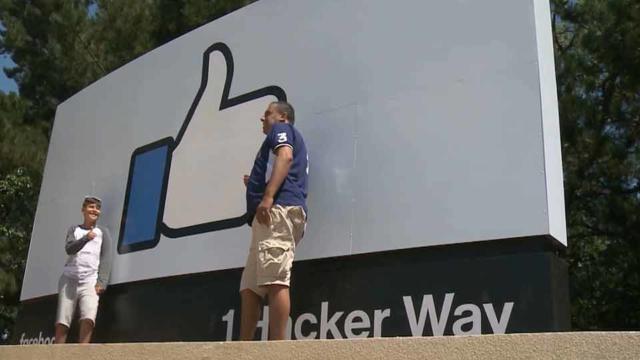Has the public’s trust in Silicon Valley gone bust? Many, including some who live and work there, said that it has. The center of America’s tech industry used to be known for entrepreneurs building businesses out of their garages.
But as CGTN’s Phil Lavelle shows, that’s no longer true.
Silicon Valley has long been the envy of the tech world: a place where people can change the world and have fun along the way. But that image is being challenged, especially in the wake of several high-profile scandals.
Facebook’s links with Cambridge Analytica have come under congressional and parliamentary inquiry, while the social media giant is also being hammered for its role in the spread of “fake news.” Ride-sharing company Uber has faced multiple allegations of sexual harassment and overly aggressive business techniques. And Google was also thrust into the #MeToo movement when a memo (written by a now former employee) with less than complimentary personal comments was leaked.
These are just a few that have brought unwanted attention.
Influential magazine Fast Company has said the public’s love affair with Silicon Valley is now over, while TechCrunch said the perception of the industry now ranks near the bottom with Wall Street.
“I’ve had multiple confrontations since living here,” according one tech worker who we will refer to as Kevin. “I don’t wear anything with any identifiable logo now.”
Kevin won’t show his face, worried about repercussions if he’s seen to be criticizing the industry. But he’s very conscious of how he and his peers are now seen. He works in a senior role for a tech firm in the Bay Area, and has served at other well-known organizations there as well.
“I’m not thrilled with a lot of what’s going on in tech. There’s aspects of it which are pretty nasty about its motivations.”
When it comes to explain to others what he does for a living, Kevin has even resorted sidestepping.
“I try to think of describing what I do, without saying the words ‘tech.’ At times, there are some parts of what we do that definitely make me a little ashamed. But then there are parts that I’m proud of. So it’s a mixture.”
Scandals have led to nothing short of a public relations nightmare for an industry that millions (of both people and dollars) have flocked to be a part of.
Sanjay Nair, the Global Tech Chair at Edelman, says now is the time for the industry to try to reverse that image.
“For tech to build trust, they have to be proactive in addressing the technology issues that are creating all of this confusion,” he explained. “I think tech as an industry needs to take a step back and look at what is it that’s causing this distrust? And it’s been their reaction to issues rather than being proactive about issues.”
Pat Connolly runs health tech startup Corevity. His diagnosis of the problem? Money took over.
“There was this underlying assumption for most people that Silicon Valley meant to do good, and money came with doing good. What’s become very clear is that they want to good, but not at the cost of losing money.”
Money is definitely a big part of the problem. Due to the extreme wealth that has poured into the Bay Area and a shortage of housing, home prices have rocketed. San Francisco is now officially the most expensive city in the United States (by some measures, the world) to live, with average rents for a one bedroom apartment hitting $3,300 a month. One study claims that to live just comfortably, residents need to earn at least $123,000 a year. The second most expensive city, New York, is around $99,000 a year.
As a result, many are feeling squeezed out of communities they grew up in.
“The truth of the matter is that the situation is so bad right now that people are struggling to understand who to blame,” explained Pilar Lorenzana, a housing expert with SV@Home, which specializes in housing issues in the Bay Area. “As human beings, it’s very easy to lay the blame on one person, on one sector, and unfortunately, that’s what we’re finding right now.”
Lorenzana went on to explain that much frustration – and anger – has built up. Much of that comes from growing inequality in the Bay Area.
So as the tech industry has grown, some have grown weary of it. But Silicon Valley is a place where a simple idea can change the world. Changing how others see it is a job much closer to home, and “Kevin” is optimistic.
“I think the fact that there is at least awareness – or acknowledgement, if not awareness – that there’s a problem now at least gives me a sense of hope.”
 CGTN America
CGTN America
 The center of America’s tech industry used to be known for entrepreneurs building businesses out of their garages. But that image no longer holds true.
The center of America’s tech industry used to be known for entrepreneurs building businesses out of their garages. But that image no longer holds true.
